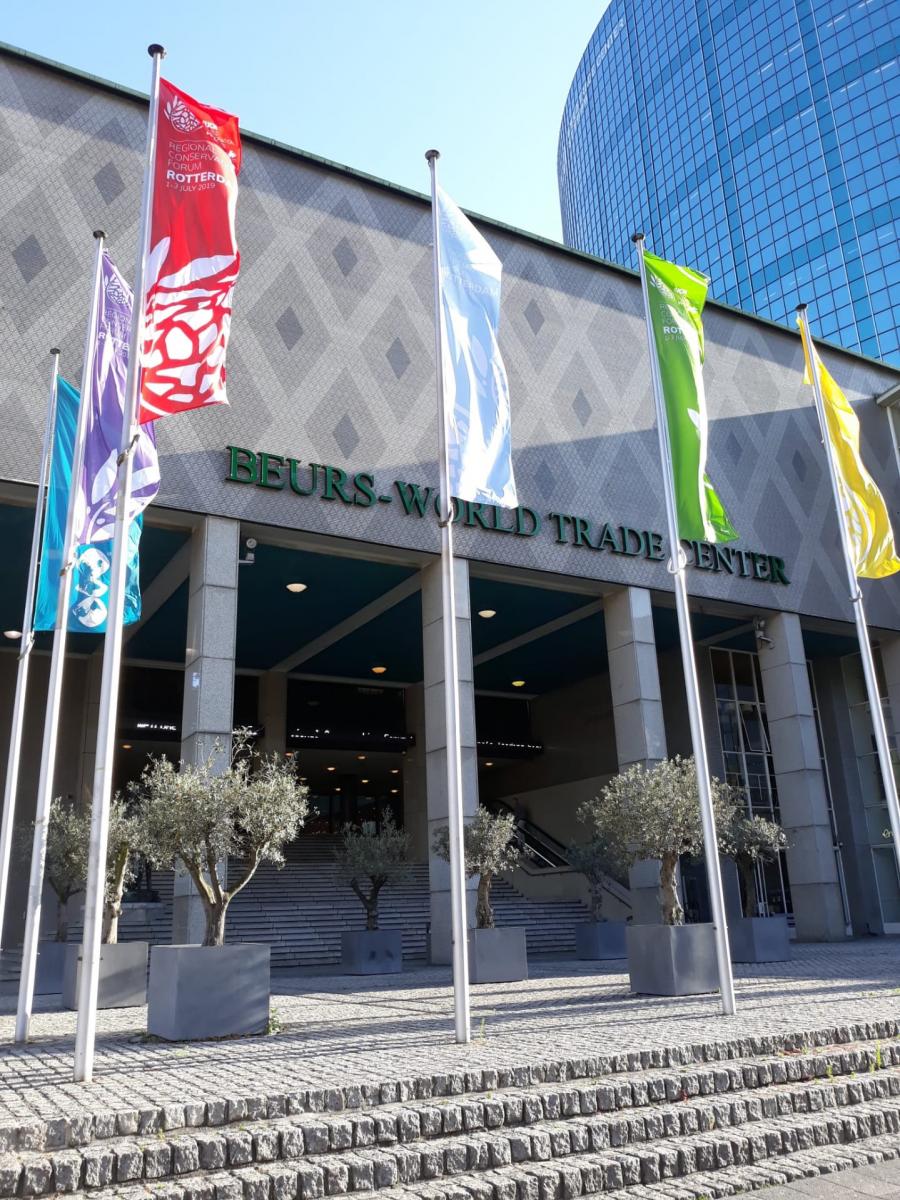Mobilising IUCN in Europe, North and Central Asia
IUCN Regional Conservation Forum (RCF) for Europe, North and Central Asia, opened its doors today in Rotterdam, the Netherlands aiming to mobilise the regional community and sparkle fresh ideas related to the preservation of biodiversity. Discussions ranged from high-level interventions on Post 2020 biodiversity framework to focused parallel sessions tackling issues such as plastic pollution, climate adaptation and tools for measuring biodiversity loss, to name a few.
“With more than 50 nationalities attending this event, imagine the potential we have here in one room,” said Grethel Aguilar, Acting Director General of IUCN, opening the IUCN RCF in Rotterdam. Calling for the positive change, she stressed that humanity needs to set a course that makes economic and social development compatible with the conservation of nature.
The opening High-level Panel discussion recognized regional successes and pitfalls regarding the prospects of the upcoming framework and identified the most stressing factors as well as the most urgent actions and policy changes needed. Daniel Calleja-Crespo, Director General, DG Environment, European Commission called for immediate action and urgent transformational change. “We are the first generation aware of the biodiversity loss, let us not be the last one to act. All the reports confirm that what we are doing today is not enough - economy and ecology have to go in the same direction, and this should be our task in the coming months”, he concluded.
Carl Amirgulashvili, Head of Biodiversity and Forestry Department at the Ministry of Environmental Protection and Agriculture of Georgia called for stronger support and presence of the international community in developing countries. “We cannot talk about nature and biodiversity needs if the society is poor – tackling poverty is a priority issue in the developing world. Adequate financing needs to follow political commitments on nature conservation,” he concluded.
“It’s not just Europe that needs to change its policies and practices: countering the trend of biodiversity loss requires a global effort,” stressed Luc Bas, Director of IUCN Regional Office for Europe. In the following two days, IUCN Members and Commissions will discuss next IUCN Programme 2021-2024, regional workplans and concrete actions, gearing up for the IUCN Congress 2020 in Marseille, France and making sure regional aspects are adequately reflected at this world’s leading biodiversity event. The turning point is expected in October 2020 in Kunming, China, where world leaders will have to commit to ambitious and binding targets that will guarantee the future of our planet. “Europe has the opportunity to set the right example and strive for an ambitious agenda. We hope that the messages sent from IUCN RCF in Rotterdam will be loudly heard in Kunming, reaching it via the IUCN Congress next year”, Bas concluded.



